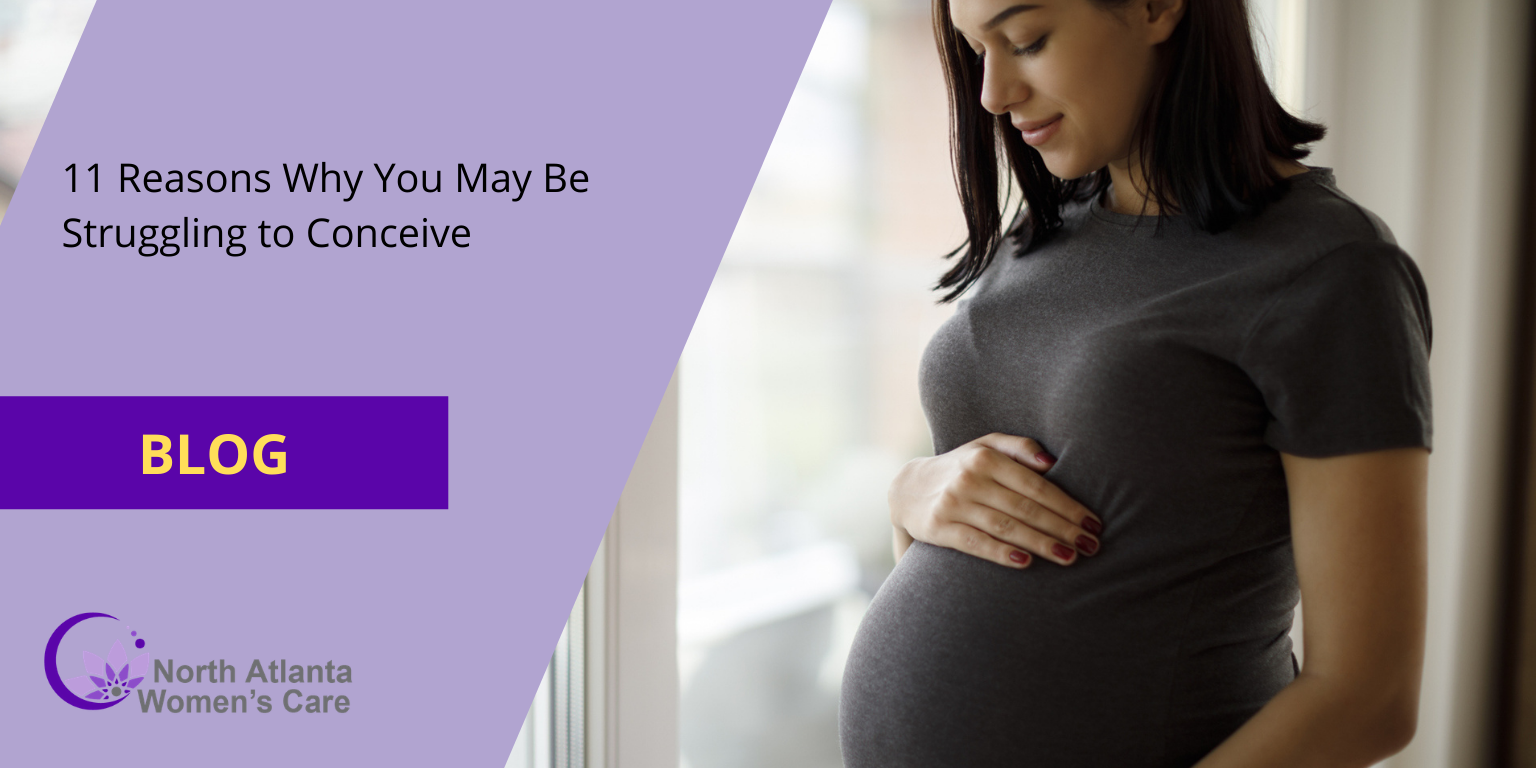11 Reasons Why You May Be Struggling to Conceive

If you are finding it difficult to conceive, you may need to consult with a provider to identify the possible reasons and potential problems. The reasons for not conceiving may include ovulation irregularities, thyroid disorder, polycystic ovary syndrome, and irregular periods. Identifying and treating any conditions can help you increase your chances of conceiving.
Why Am I Not Getting Pregnant Despite Everything Being Normal?
Infertility is the inability to get pregnant after a year of trying for women under 35 or six months of trying for women who are 35 and above. Often, underlying medical conditions can lead to infertility. Here are some reasons why you might be struggling to conceive:
1. Not Having Intercourse at the Right Time
Though having intercourse at any time can make you pregnant, you are most fertile during ovulation. Ovulation usually occurs 10 to 16 days before your menstruation starts. You can track it easily if you have regular periods, and you can also use the calendar method or an ovulation predictor kit to track it.
2. Endometriosis
Endometriosis is the condition where tissue similar to the uterus’ inside lining grows outside the womb, blocking the parts of the pelvic area including, the ovaries, bladder, fallopian tubes, intestines, and appendix. This can trigger immune changes that block an embryo or make it harder to get pregnant and implant a fertilized egg.
3. Polycystic Ovary Syndrome (PCOS)
PCOS is irregular or absence of ovulation caused by hormonal imbalance. It’s a common cause of female infertility, but it can be treated with anti-androgen medications.
4. Male Infertility
Factors like obesity, anatomical problems, smoking, alcohol consumption, and chronic diseases such as diabetes and infections can cause male infertility. Generally, a sperm count or semen analysis is performed to determine the root cause. Based on that, your doctor will suggest medications or lifestyle changes.
5. Irregular Periods
Hormonal imbalance, thyroid disorder, and weight gain or loss can cause irregular periods. Abnormal periods indicate irregular or no ovulation. Visit your doctor to identify and treat this underlying cause.
6. Thyroid Disorder
Hypothyroidism can impact the production of reproductive hormones in women, causing irregular periods and ovulation problems. Therefore, treating the condition can normalize your periods, increasing your chances of getting pregnant.
7. Untreated Pelvic Inflammatory Disease (PID)
PID is the infection of the female reproductive organs, often resulting from untreated sexually transmitted diseases like gonorrhea and chlamydia. It is treated with antibiotics, but if it is not treated in a timely manner, then the infection-induced inflammation can cause irreversible scarring in the reproductive tract, making it harder to get pregnant.
8. Diminished Ovarian Reserve or Premature Ovarian Insufficiency
Diminished ovarian reserve means a decreased number of eggs or their quality. It usually happens to women as they get older. If this condition occurs before 40 years of age, it is called premature ovarian insufficiency or premature ovarian failure.
9. Uterine Fibroids
These growths are common and harmless but can be painful and make it more difficult to conceive. Most fibroids do not cause fertility issues, but location and size can make it harder for a fertilized egg to implant in your uterus or an egg to be fertilized. Treating or removing the growths can resolve the issue.
10. Blocked Fallopian Tubes
Fallopian tubes are the pathway between your uterus and ovaries. When they are blocked, the sperm cannot reach the egg, meaning fertilization cannot occur. Scar tissue, previous ectopic pregnancy, and infections cause blockages in fallopian tubes. Some women experience pelvic pain as a symptom of blocked fallopian tubes, while others do not have any symptoms
11. Unexplained Infertility
In one-third of cases, the reason for infertility is unknown. However, it does not mean that you cannot be treated. Consult with your doctor on possible steps you can take to conceive.
When Should You Consult with a Gynecologist?
Visit your gynecologist if:
- You are not getting pregnant even after trying for six months to a year.
- If you are above 40 and are unable to get pregnant.
- You have any of the above-mentioned conditions.
Some causes of infertility worsen with time, so avoid waiting too long to consult your gynecologist if you are having difficulty getting pregnant.
Visit North Atlanta Women's Care for Personalized Infertility Care
Are you struggling to conceive? Here at North Atlanta Women's Care, we understand the challenges of infertility. Our team of compassionate gynecologists works with you to explore all options and create a personalized path to pregnancy. We consider your unique needs and health history to provide the best care. Contact us today to schedule an appointment and explore your options.
Comments are closed

